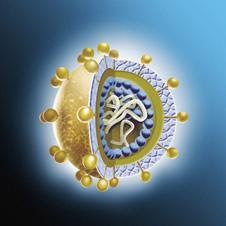The Rodger Wright Centre

Hepatitis C (HCV) is an inflammation of the liver caused by a virus. The symptoms of HCV are typically mild and non-specific and can include fatigue, irritability, loss of appetite and general flu-like symptoms. You may experience a general feeling of being unwell and symptoms may be worse at the end of the day.
Other symptoms can include nausea, abdominal pain, muscle and joint aches and, less commonly, jaundice, dark or strong smelling urine, dry itchy skin, gritty eyes, depression and weight loss.
Hepatitis C is the cause of 70% of all viral liver disease. About 80% of those infected develop chronic hepatitis C leading in some cases to cirrhosis, end stage liver disease and liver cancer, then death.
In New Zealand the prevalence of HCV infection is thought to be about 1% of the adult population. About 80% of those living with the virus can identify how they acquired it. However, as many as 20% are unsure when and how they picked up the virus. About 50% will have active liver disease attributed to the viral infection. Most people will not experience symptoms during the first 15 years after the incident of infection.
How Is hepatitis C Transmitted?
Hepatitis C is a blood borne virus that may have been in New Zealand since the 1970's. Intravenous drug users (past and present) are regarded as the biggest at risk group. People receiving blood or blood products before the introduction of blood donor screening in 1992 are also at risk.
The hepatitis C virus can be transmitted via sexual contact and from mother to baby at birth, although these modes of transmission are rare and poorly understood.
People who work in the health care industry are also at risk, however this risk is low when universal precaution procedures are followed correctly.
Tattooing and body piercing with unsterile equipment are also ways in which the virus can be transmitted.
There are many cases with no apparent symptoms, consequently, as many as 30% of infected persons are unaware that they have the virus. There may also be as yet undocumented modes of transmission. Treat all people's blood as potentially dangerous and maintain your own skin's integrity by applying plasters to all cuts and open wounds.
Never share any personal health care items that have the potential to carry infected blood.
Never share any injecting equipment ever.
Are You At Risk?
Currently, or in the past, have you:
Been exposed to improperly sterilised equipment while having a tattoo, body piercing or acupuncture?
Snorted drugs from a shared straw?
Injected drugs (even once)?
Been in prison?
Had a problem with alcoholism?
Changed sex partners frequently?
Shared razors, toothbrushes, or any personal item that could carry infected blood?
Had unprotected sex with anyone who meets the descriptions above?
For more information contact your nearest HCV Centre or Needle Exchange Programme
National Help Line 0800 224372 (0800 22 HEPC)